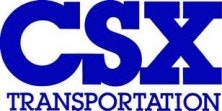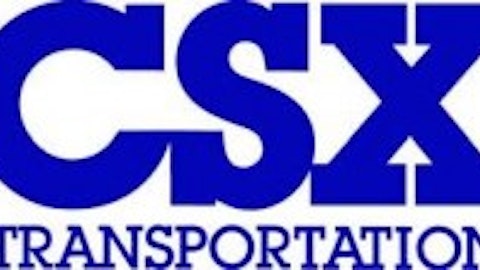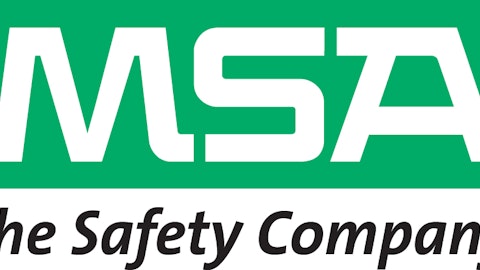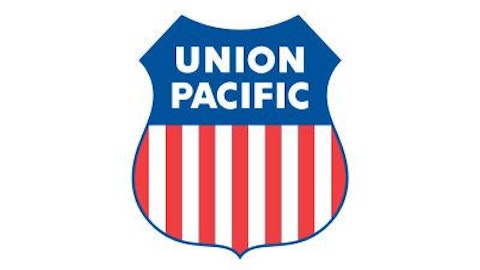Recently, Fool contributor Michael Olsen picked CSX Corporation (NYSE:CSX) for his Real Money portfolio. In the past five years, CSX has had sluggish performance, gaining only 19.77%, much lower than the S&P 500’s return of more than 37%. Joel Greenblatt and Ken Fisher initiated long positions in the company in the first quarter, while Ray Dalio and Bill Gates sold out their positions. Should we invest in CSX now? Let’s take a look.
Three things I like about CSX
CSX Corporation (NYSE:CSX) is considered one of the U.S. leaders in transportation and logistics, employing around 32,000 people in 2012. Most of its revenue, $6.7 billion, or 57% of the total revenue, is derived from the merchandise business, which transported around 42% of the total transportation volume in 2012. The coal business brought around $3.17 billion in revenue, whereas around $1.64 billion in 2012 sales came from the intermodal business.

Secondly, the company’s consistent cash flow lets CSX Corporation (NYSE:CSX) to leverage significantly; however, the company still has quite a reasonable leverage. As of June, it had $9.64 billion in equity, more than $1 billion in cash and short-term investments, and nearly $9.4 billion in both long & short-term debt. What makes CSX more interesting is its high level of deferred tax liabilities of more than $8.3 billion, or $8.10 per share. The deferred tax liabilities could be considered as the interest free loan from the government.
Last, but not least, CSX Corporation (NYSE:CSX) has paid consistently increasing dividends to shareholders. Its dividend per share increased from $0.07 per share in 2003 to $0.54 per share in 2012. At $24.70 per share, CSX is worth around $25.14 billion on the market. The market values CSX at 7.3 times its trailing EBITDA (earnings before interest, taxes, depreciation and amortization). Investors could get a decent dividend yield at around 2.40% at its current trading price.
Going forward, CSX Corporation (NYSE:CSX) expects to have a high-60’s operating ratio by 2015, along with the EPS growth of 10%-15%. The company is also targeted to increase its quarterly dividend payment by 7%, to $0.15 per share, with the payout ratio of around 30%-35%. Moreover, CSX will also return cash to its shareholders by a $1 billion share buyback in the next two years.
The lowest valuation among its peers
Compared to its peers, Norfolk Southern Corp. (NYSE:NSC) and Union Pacific Corporation (NYSE:UNP), CSX Corporation (NYSE:CSX) is the cheapest valued company among the three.
Norfolk Southern Corp. (NYSE:NSC) is trading at $74 per share, with the total market cap of around $23.10 billion. The market values Norfolk Southern at more than 8 times its trailing EBITDA. In the second quarter, Norfolk derived most of its revenue, $1.59 billion, from merchandise while the coal segment contributed around $626 million.
For the full year, Norfolk Southern Corp. (NYSE:NSC) expects the sluggish outlook for coal business, but improvement in merchandise and intermodal business. The lower outlook for coal business was due to the lower demand for electricity, higher competition from natural gas, weak demand in the European market for both met and steam coal, and a weaker Asian market along with the strong Australian dollar. The growth in intermodal and merchandise business was led by highway conversion, growing international shipping partners and the improvement in housing & related construction materials market. Norfolk also offers investors a good dividend yield at 2.8%, with a reasonable payout ratio at 37%.





